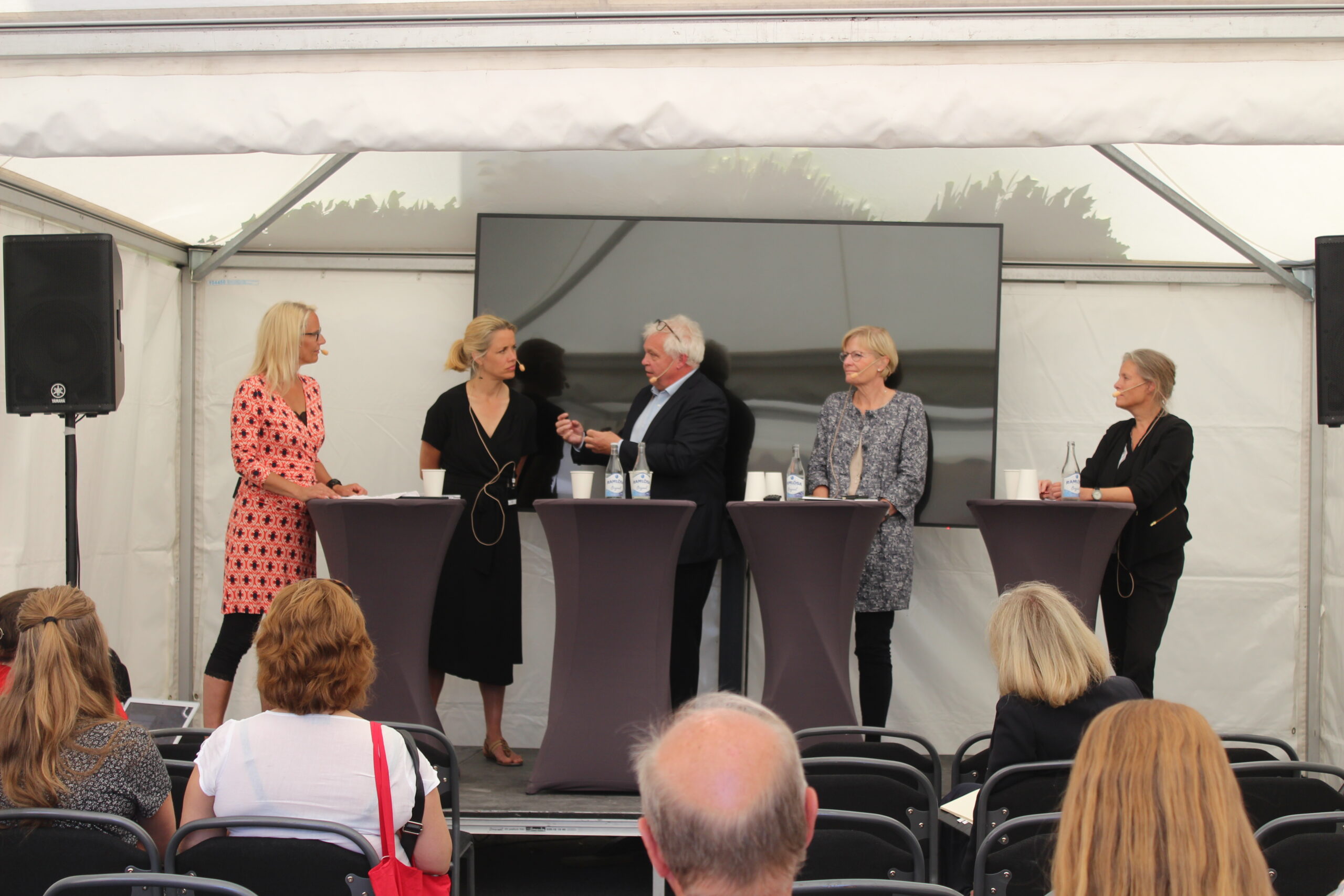ReproUnion recently participated in what is known to be the most important political forum in Sweden – Almedalen Week. Almedalen Week started in 1968 in Visby, on the beautiful island of Gotland. Over the past few years there have been more than 30,000 participants in attendance at the event.
On July 6, the ReproUnion Fertility Awareness team, in collaboration with Lund University, participated in a very passionate debate at the social and political festival Almedalsveckan at the Swedish island, Gotland. The focus of the debate was on how involuntary infertility has become a public disease and as a result, the human and social costs.
The panel consisted of Professor Søren Ziebe from the Fertility Clinic at Rigshospitalet, Associate Professor Britt Friberg of the Fertility Clinic at Skåne’s University Hospital, Professor Lone Schmidt from Department of Public Health at the University of Copenhagen, and Mia Ahlberg, PhD in Medicine from Karolinska Institute and Chair of the Swedish Midwife Association.
The overall message from the panelists was that young people should have a higher level of knowledge and be more aware of their own biology, and its potentials and limitations, when it comes to having children. However, the panelists agreed, it is very important that these facts don’t become yet another stress factor in young people’s lives.
The debate then revolved around solutions to the infertility challenge and the panelists suggested educational efforts as well as structural changes in our societies to subsidize future parents and even make it less disadvantageous for companies and educational institutions to support young people becoming parents.
An interesting subject arose as the panelists touched the matter of young men and their approach towards becoming fathers. As Professor Ziebe puts it: Resents studies show that young men act kind of “actively ignorant”. That they acknowledge their lack of knowledge when it comes to their own fertility, but they actively choose not to seek more information. They don’t want to challenge their own masculinity, it seems.
It was also mentioned that in the future it might be a parameter in CSR (Corporate Social Responsibility) that organizations support the employee’s ability to start a family and that this would encourage them to develop policies and even benefits to make it easier for young parents, e.g. provide childcare facilities.
ReproUnion wish to thank the panelists for a very constructive and passionate debate and for taking upon the challenge to convey the latest knowledge about infertility to the public and the solutions in an awareness context to a higher level.

